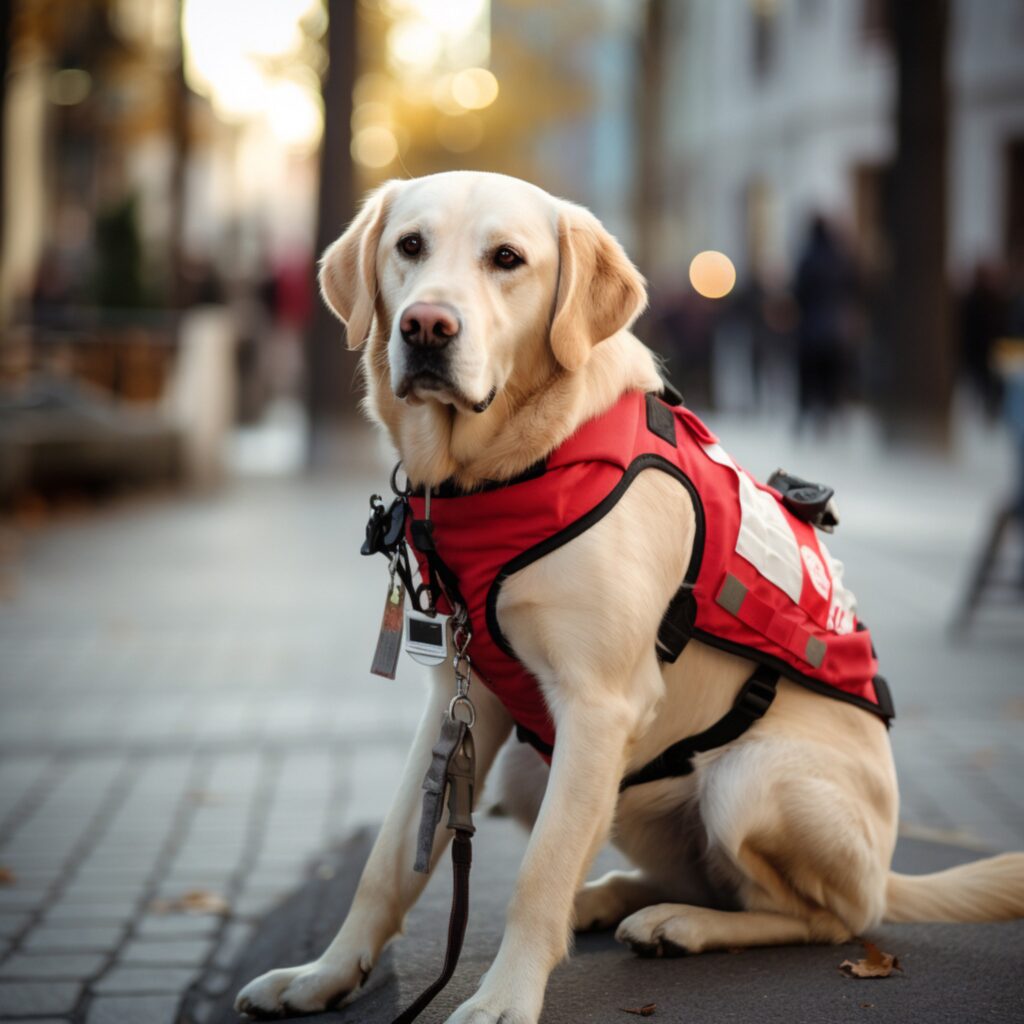Introduction
Service animals play a crucial role in the lives of individuals with disabilities, offering more than just companionship. These specially trained animals provide essential support, allowing their handlers to navigate daily challenges with greater independence and confidence. From guiding the visually impaired to alerting those with hearing loss, service animals are indispensable partners in enhancing the quality of life.

What is a Service Animal?
A service animal is defined by the Americans with Disabilities Act (ADA) as a dog that has been individually trained to perform tasks directly related to a person’s disability. These tasks can range from guiding individuals with vision impairments to pulling a wheelchair or retrieving dropped items. While dogs are the most common service animals, miniature horses can also serve in this role under specific circumstances.
Types of Service Animals
1. Guide Dogs
Guide dogs assist individuals who are visually impaired or blind. These dogs are trained to navigate obstacles, signal changes in elevation, and provide directional guidance, allowing their handlers to move around safely and independently.
2. Hearing Dogs
Hearing dogs alert individuals with hearing impairments to important sounds such as doorbells, alarms, and approaching vehicles. By physically nudging or pawing their handlers, these dogs ensure that their owners are aware of their surroundings and potential dangers.
3. Mobility Assistance Dogs
Mobility assistance dogs support individuals with physical disabilities by helping them with tasks like opening doors, turning on lights, and retrieving objects. These dogs can also provide stability for those with balance issues, significantly enhancing their mobility and independence.
4. Medical Alert Dogs
Medical alert dogs are trained to detect specific medical conditions and alert their handlers to imminent health issues. For example, diabetic alert dogs can sense changes in blood sugar levels, while seizure alert dogs can predict and warn their handlers of an impending seizure.
Benefits of Service Animals
Enhanced Independence
Service animals enable their handlers to perform daily activities with greater ease, fostering a sense of independence and self-reliance. This increased autonomy can significantly improve the overall quality of life.
Emotional Support
Beyond their functional roles, service animals also provide emotional support and companionship. The bond between a service animal and its handler can alleviate feelings of loneliness and depression, contributing to better mental health.
Safety and Security
Service animals enhance the safety and security of their handlers by alerting them to potential hazards and assisting them in emergencies. This sense of security allows individuals to engage more confidently in social and professional activities.
Legal Protections and Rights
Under the ADA, service animals are granted specific legal protections to ensure they can accompany their handlers in public places. This includes access to restaurants, stores, and public transportation. It’s important for businesses and the general public to understand these rights and accommodate service animals appropriately.
Training and Certification
Training a service animal requires time, dedication, and expertise. Many organizations specialize in training service dogs, ensuring they meet the rigorous standards necessary to perform their duties effectively. While certification is not mandated by the ADA, it can provide additional assurance of a service animal’s capabilities.
Conclusion
Service animals are invaluable partners for individuals with disabilities, providing essential support that enhances their independence, safety, and emotional well-being. As we continue to recognize and respect the vital roles these animals play, it is crucial to uphold their rights and appreciate the profound impact they have on their handlers’ lives.
By understanding the significance of service animals and promoting their acceptance in society, we can contribute to a more inclusive and supportive environment for everyone.
 AyRoo
AyRoo